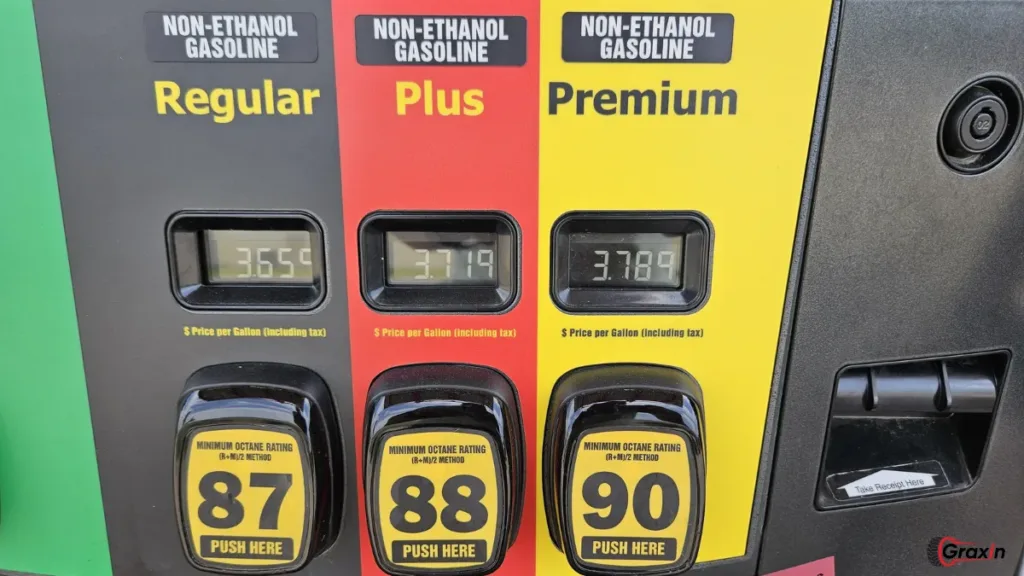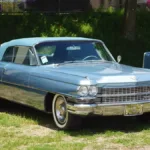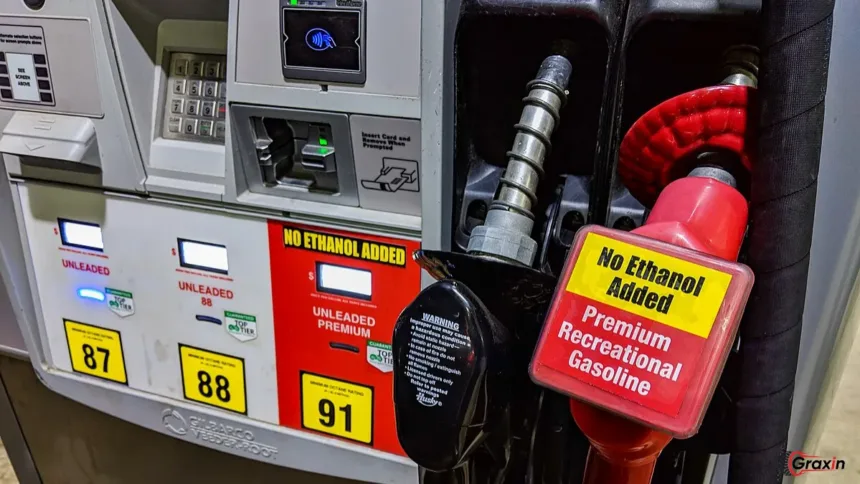Alright, folks! Let’s chat about a topic that might not make it to your dinner table but definitely deserves a spot in your car care conversations: ethanol vs non-ethanol gas. Now, don’t roll your eyes just yet! This isn’t going to be a boring lecture. Think of it more like a casual coffee chat with a side of laughs and a sprinkle of wisdom.
What’s the Deal with Ethanol Gas?
So, let’s start with ethanol gas often called E10 because it’s about 10% ethanol and 90% gasoline. You might have noticed those labels at gas stations and thought, “Ethanol? Sounds fancy, but what the heck is it?” Well, it’s like that friend who’s always bringing up their new diet; it sounds good, but it can be a bit complicated. Ethanol is made from plants, like corn, which is basically a vegetable’s way of being a hero in the fuel world.
- Pros of Ethanol Gas:
- Environmentally Friendly: Think of it as the eco-warrior of fuels. Using ethanol can help reduce greenhouse gas emissions by about 43%. That’s like hugging a tree while driving!
- Octane Booster: If your car loves the speed, ethanol can give it a little boost, making it purr like a kitten on a sunny day.
But, before you start filling up your tank with glee, let’s chat about some of the downsides.
The Not-So-Great Side of Ethanol Gas
Now, here’s where things get a little sticky literally. Ethanol can be a bit of a diva when it comes to engine compatibility. If you’re driving an older car, it might not appreciate the presence of ethanol as much as a cat hates water. It can degrade rubber seals and gaskets, leading to some expensive repairs. So, if your car is vintage, you might want to think twice before pouring in the E10.
Oh, and let’s talk about fuel economy. Using ethanol can make your gas mileage dip like a bad dance move at a wedding. You might find yourself stopping for gas more often, which is like finding out your favorite show got canceled frustrating!
Non-Ethanol Gas: The Classic Option

Now, let’s flip the coin and talk about non-ethanol gas. This is the pure, unadulterated gasoline no funky additives, just straight-up fuel. It’s like going to a diner and ordering a classic burger; sometimes, you just want the basics, right?
- Why Go Non-Ethanol?
- Engine Longevity: If you want your car to live a long, happy life, non-ethanol might be the way to go. It’s easier on older engines and can keep them running smoothly like a well-oiled machine.
- Better Fuel Economy: Many folks report getting more miles per gallon with non-ethanol. It’s like finding extra fries at the bottom of the bag who doesn’t love that?
But before you dive in, let’s sprinkle in some reality.
The Flip Side of Non-Ethanol Gas
Alright, here comes the downside. Non-ethanol gas often comes with a heftier price tag. Think of it as that fancy restaurant where you know you’re going to spend a bit more but still end up feeling great about your choice. It might not always be easy to find, either. You might need to play a little game of “Where’s Waldo?” at the gas stations to locate it.
Let’s Get Real: The Comparison Game
Okay, let’s break it down in a way that even your grandma would understand. Here’s a handy-dandy comparison table to see how these two stack up against each other:
| Feature | Ethanol Gas (E10) | Non-Ethanol Gas |
|---|---|---|
| Composition | 10% Ethanol, 90% Gasoline | 100% Gasoline |
| Environmental Impact | Lower emissions | Higher fossil fuel reliance |
| Engine Compatibility | Best for modern engines | Ideal for older vehicles |
| Fuel Economy | 3-5% less efficient | More efficient |
| Cost | Usually cheaper | Often more expensive |
| Stability | Less stable, moisture absorption | More stable, longer shelf life |
My Personal Take: The Bottom Line

So, what’s the verdict? Well, it really boils down to your situation. If you’re driving a sleek modern vehicle and want to do your part for the planet, ethanol gas can be your buddy. Just remember to check if your engine can handle it no one wants to throw money at repairs like it’s going out of style.
On the flip side, if you’ve got an older car or a beloved classic, non-ethanol gas might be the way to go. It’s like giving your car a warm hug smooth, gentle, and full of love.
Wrap Up with a Giggle
Whichever path you choose, just remember to fuel up with confidence and maybe a few dad jokes about cars (they’re always a hit). Whether you’re team ethanol or team non-ethanol, knowing your stuff can save you some cash and keep your ride running like a dream.
FAQs
1. Can I use ethanol gas in my classic car?
It’s best to double-check the manual. Some classic cars can be sensitive to ethanol kind of like how your grandma reacts to spicy food!
2. Does ethanol gas harm my vehicle’s engine?
Not usually, but older engines might not appreciate the ethanol as much. It can be a bit harsh on those vintage parts.
3. Why is non-ethanol gas more expensive?
It’s less common and produced in smaller amounts, which naturally jacks up the price. Just think of it as the luxury option.
4. Can I mix ethanol and non-ethanol gas?
Mixing isn’t recommended kind of like putting pineapple on pizza. Some people love it, but others? Not so much.
5. How can I find non-ethanol gas near me?
Check out websites like Pure-Gas.org. It’s like having a treasure map for fuel happy hunting!
Also Read: Hood Struts: The Unsung Heroes of Your Car’s Hood







